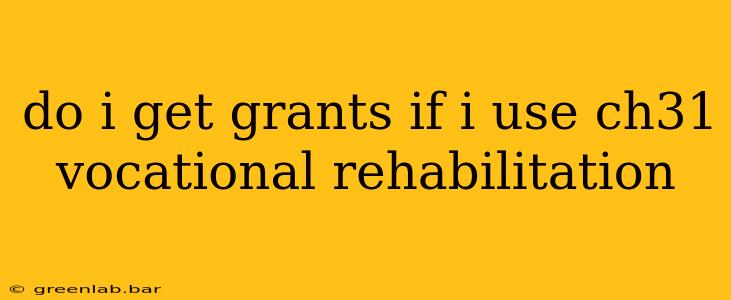Can I Get Grants Through Chapter 31 Vocational Rehabilitation?
Navigating the world of vocational rehabilitation and funding can be confusing. Many veterans and service members wonder about the possibility of receiving grants through Chapter 31, the Vocational Rehabilitation and Employment program. The short answer is: not directly, but there are avenues for financial assistance that can significantly aid your vocational goals.
This post will clarify the relationship between Chapter 31 and grant funding, exploring the support available and how to access it.
Understanding Chapter 31 Vocational Rehabilitation
Chapter 31, administered by the Department of Veterans Affairs (VA), offers a comprehensive program designed to help veterans with service-connected disabilities pursue employment. This program isn't just about job training; it encompasses a range of services tailored to individual needs. These services might include:
- Counseling: Assessing your skills, interests, and goals to develop a personalized plan.
- Education and Training: Funding for vocational training programs, including tuition, books, and supplies. This is not a grant in the traditional sense; it’s a benefit provided as part of your eligibility under Chapter 31.
- Job Placement Assistance: Help with resume writing, interview skills, and job searching.
- Adaptive Equipment: Providing necessary assistive technology or equipment to support your employment goals.
- Medical Care: Addressing any health conditions impacting your ability to work.
Where the Funding Comes From: Benefits, Not Grants
It's crucial to understand that Chapter 31 doesn't provide grants in the traditional sense, meaning you don't receive a lump sum of money to use as you see fit. Instead, the VA provides benefits to cover the costs associated with your individualized rehabilitation plan. These benefits are tied directly to your participation in the program and the services you need.
Accessing Financial Assistance Outside Chapter 31
While Chapter 31 itself doesn't offer grants, other avenues exist to supplement your vocational training and education:
- State Vocational Rehabilitation Agencies: Many states have their own vocational rehabilitation programs that may offer additional grants or funding opportunities, often in conjunction with the VA's Chapter 31 program. Contact your state's vocational rehabilitation agency to learn about potential supplemental funding.
- Scholarships and Fellowships: Numerous organizations offer scholarships and fellowships specifically for veterans and service members pursuing education and training. Research these opportunities online to find ones that align with your chosen field of study.
- Employer-Sponsored Tuition Assistance: Many employers offer tuition assistance programs to their employees, which can help defray the costs of education or training.
- GI Bill Benefits (Chapter 33): If eligible, combining Chapter 31 with Chapter 33 (the Post-9/11 GI Bill) can provide a more comprehensive financial package. This could cover additional educational expenses not entirely covered by Chapter 31.
The Key Takeaway
Chapter 31 is a powerful tool for veterans with service-connected disabilities seeking employment. While it doesn't directly provide grants, it offers substantial benefits covering educational and vocational training costs. By exploring supplemental funding options like state programs, scholarships, and employer assistance, you can significantly enhance your financial resources throughout your vocational rehabilitation journey. Remember to consult with your Chapter 31 counselor to fully understand your eligibility and available options. They are your best resource in navigating this process successfully.

